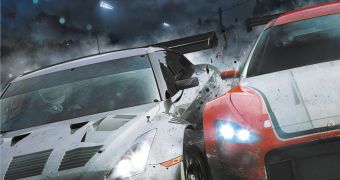I have just mastered a corner in Need for Speed: Shift 2 Unleashed, which means I got a bit of extra experience for my driver, got a bit closer to the next level and also turned a section of the track I am currently racing on green from drab gray.
A few hours later I will hear a little ding and a gold-covered announcement will pop up announcing the level I have reached, the amount of extra money I can now spend on cars and upgrades (can be read as “equipment”), the cosmetic changes I can make to vehicles and the new events I can take part in.
Does this sound like role-playing game yet (and, yes, I know that the answer very much depends on one's internal definition of what makes the genre)?
Shift 2 Unleashed is a racing game, make no mistake, one that is tough to master and offers quite a few cars to try out and a lot of tracks on which one can get outfoxed by enemies.
There are no parties here and no new skills to actually acquire, yet there's a clear sense that the developers are interested in making the sense of inhabiting a character and his development one of the main carrots that push the player forward in Shift 2 Unleashed.
But it's also a racing game which borrows from the space of computer-based role-playing game quietly yet heavily, but in a quiet way that also seems to be popping up in first-person shooters in the last few years.
As developers and publishers are looking to get more people interested in their products, the fact that the main character and the player need to have a relation beyond simple control has become clearer and experience and leveling up are the best ways to express evolution, advancement and with them a depending bond.
I will never care for my Shift 2 Unleashed driver as I cared for my city elf rogue in Dragon Age: Origins, but his evolution makes me keep on playing a bit longer than I would otherwise.

 14 DAY TRIAL //
14 DAY TRIAL //